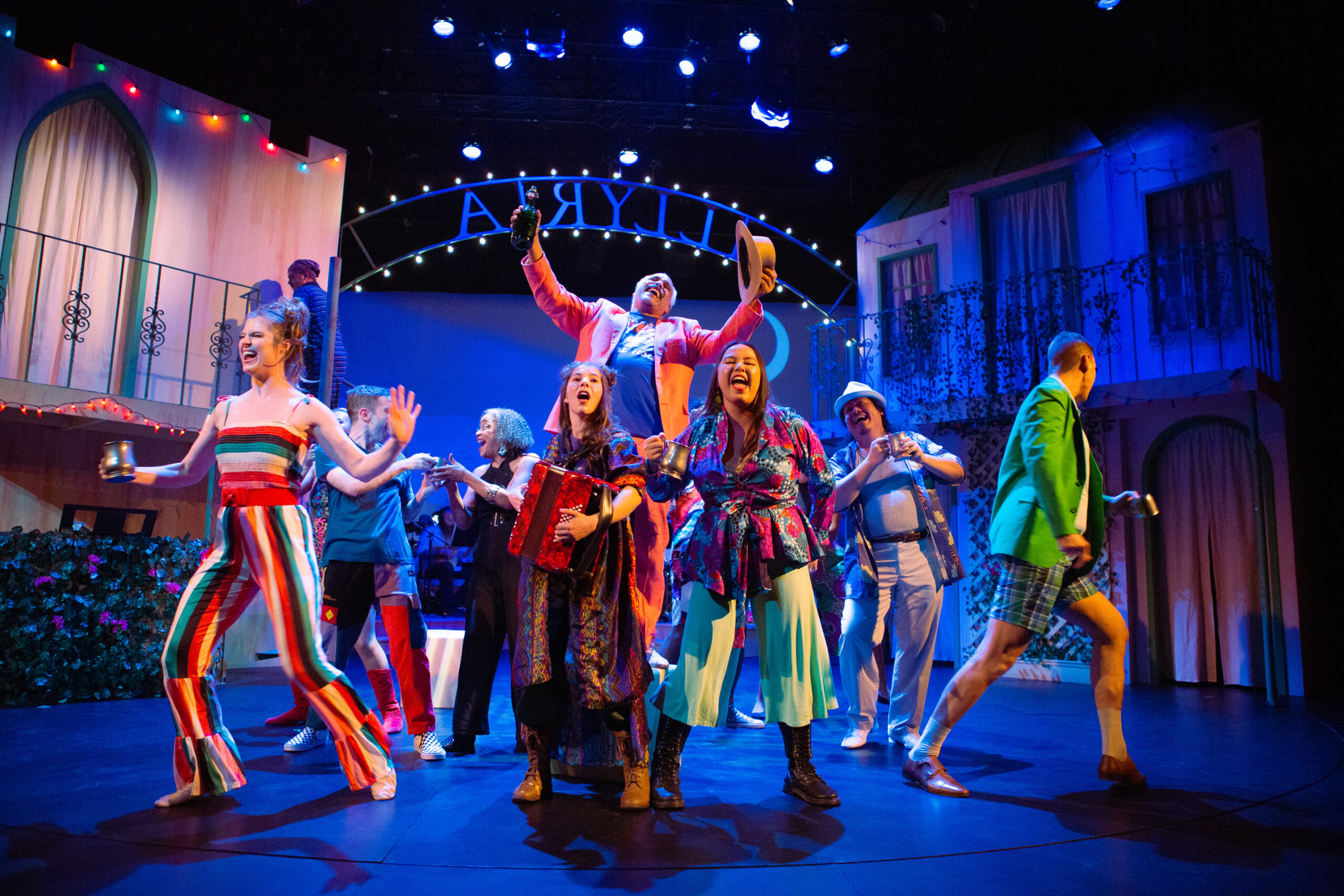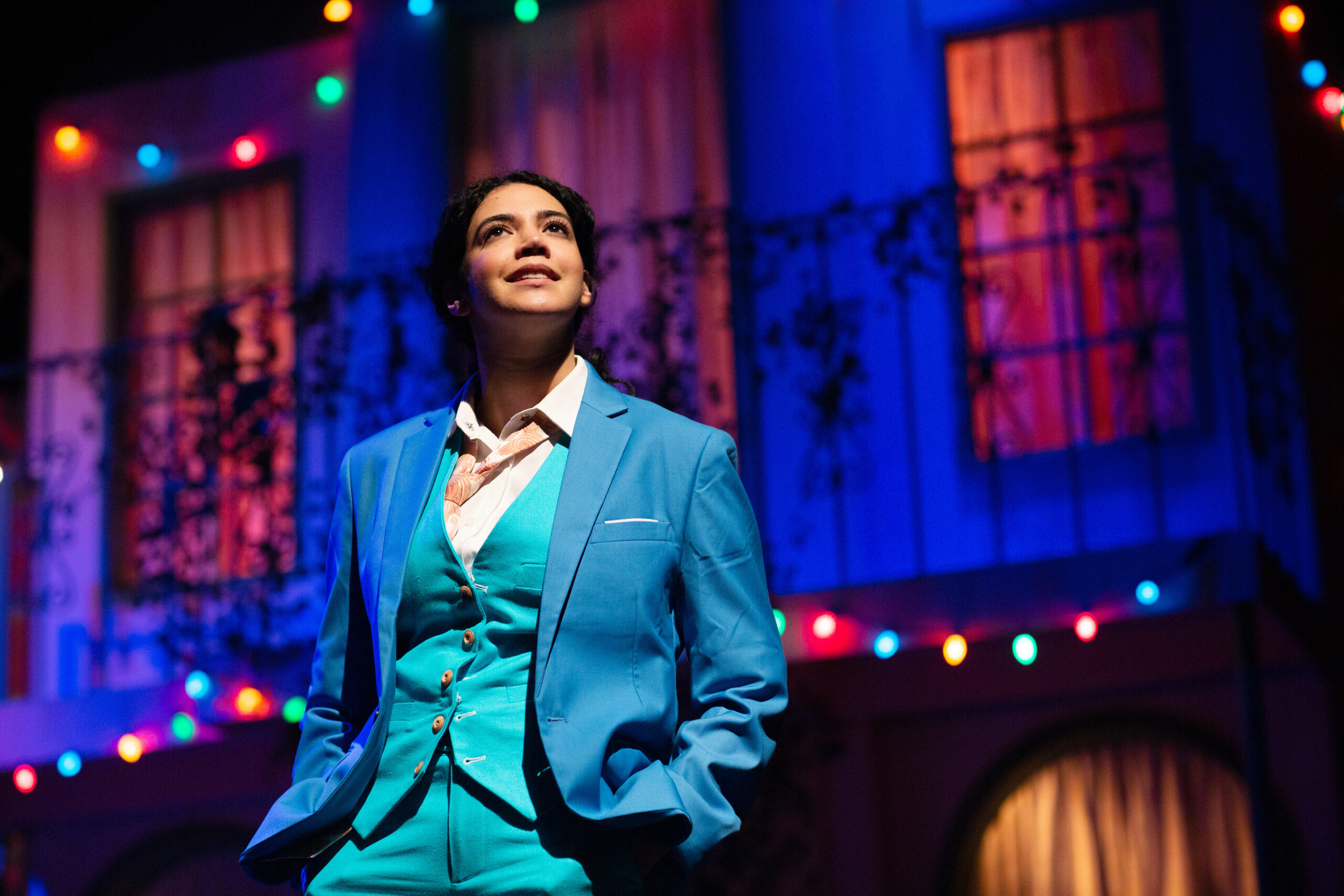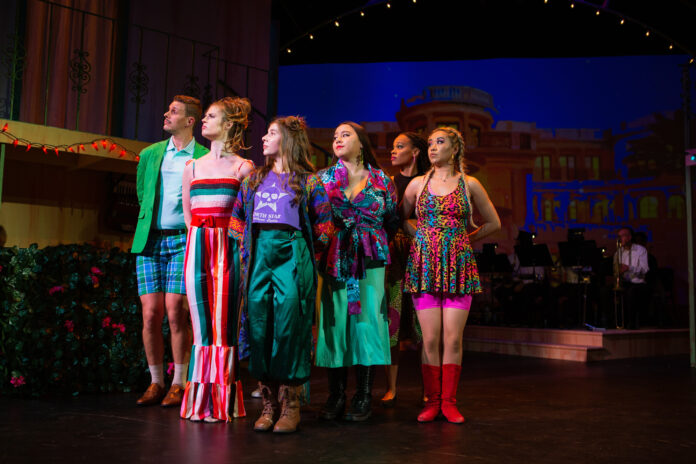By coincidence, the SF Playhouse opening for Twelfth Night occurred the same date it was revealed that San Francisco had confirmed the United States’ first case of COVID’s Omicron variant. I’ve been vaccine-boosted for three weeks and was once again double-masking, but it didn’t put me at ease to see so many mask-less people drinking in the lobby, an unmasked woman in the theatre with a persistent cough, or to have an unmasked man behind me, snacking.
Adding to the importance of keeping us all safe, the opening also happened a day after Mayor Breed was revealed to have once again been less than meticulous about following her city’s own COVID measures. Clearly, it falls to companies like the Playhouse to do their part to ensure public safety. Yet when the Playhouse re-opened to the public this past June—making them one of the first Bay Area performance companies to do so—it insisted that public safety would go hand-in-hand with the return to live productions. Its track record on the matter appears to be questionable.

As such, there was an air of discomfort in the presentation of the otherwise enjoyable Twelfth Night (through January 15), the company’s first-ever Shakespeare production. As directed by Susan Damilano, from a musical adaptation by Black Briton Kwame Kwei-Armah and musician Shaina Taub, the show takes The Bard’s other famous shipwreck play (The Tempest still looms large over that subgenre) and turns it into a rainbow-colored reimagining set on the Mediterranean coast, with New Orleans Dixieland jazz. It pushes the already-wacky story to even more cartoonish heights, making for a show about a world where no problem is so serious that it can’t be resolved by the finale.
It’s easy to see why it fits with the Playhouse’s current sensibilities.
For those who don’t know the story: A pre-text shipwreck separates twin siblings Viola (Sophia Introna) and Sebastian (Bear Maneschalchi) at opposite ends of the island of Illyria. With few options for women, an in-drag Viola becomes the right-hand “man” of Illyrian Duke Orsino (Sean Fenton), who is eager to woo the mourning Olivia (Loreigna Sinclair.) When Orsino sends Viola on his behalf, Olivia is far more stricken with the messenger than he who sent the message. And there are several more subplots about this story of practical jokes and unrequited love, which showcases just how much the works of Terence, particularly The Girl from Andros, had on Shakespeare as a writer.
Even if I hadn’t taken part in a performance of the show myself years ago, it’s easy to see why the madcap comedy continues to be regularly presented, almost as often as Midsummer. To no one’s surprise, Damilano and the Playhouse are blessed with a strong cast of Bay Area talent who bring out the best of Shaina Taub’s lyrics and melodies.
Opening number “If Music be the Fruit of Love…” dramatizes the shipwreck through pantomime, with a torch song by Feste providing background. Both Taub’s songs and the ensemble’s performances find genuine heart and soul in the portrayal of these half-millennium-old characters. Add Kwei-Armah’s text and Damilano’s direction, which delight in highlighting the play’s already-present LGBTQ+ themes, and you wind up with a refreshing modern sensibility given to the classic text (even though it retains its heteronormative ending.)

Despite those high marks, the production makes the mistake of pushing characters like Malvolio (Atticus Shaindlin) into caricature, mugging for the audience that would certainly get the joke otherwise. His broad acting contrasts with the performances of drunken Toby Belch (Michael Gene Sullivan, author of the company’s last show), the strutting Olivia (Loreigna Sinclair), and “non-genue” Viola (Introna), whose performances remain grounded.
The play suffers from the same questionable decision made by the 2013 film version of Romeo and Juliet by adding in contemporary vernacular. Shakespeare’s themes, plots, and characters are adaptable to any setting and time period, but the man was a poet first—any changes to his dialogue are done at one’s peril. You either go all in with the contemporary, à la West Side Story, or you go all in with the classic text. Taub’s lyrics make a compromise: They’re still rhyming stanzas, but the interjection of modern terms like “oh shit!” instantly pulls one out the show.
That’s unfortunate, given that the aforementioned set—designed by Playhouse AD Bill English and designer Heather Kenyon—looks like a fun place to immerse yourself with these literally- and figuratively-colorful characters (their sartorial flair courtesy of costumer Abra Berman.) As imparted by conductor Dave Dobrusky and his fellow onstage musicians, the music presents dance-ready good times that would be fun to take part in, were there not a pandemic going on.
Between a fine cast, great music, and eye-popping design, all the pieces are present in Twelfth Night for a fun distraction from the outside world, courtesy of the SF Playhouse. But while the show’s flaws don’t entirely weigh it down, the Playhouse’s lax attitude toward COVID safety makes it hard to leave the outside world behind. There’s the option to stream the play rather than sitting in the Playhouse proper, with which they experimented during 2020 lockdowns. That obviously doesn’t give the same experience as sitting in a live theater, but it certainly may make you feel safer from careless patrons.
TWELFTH NIGHT runs through January 15. San Francisco Playhouse. More info and tickets here.







